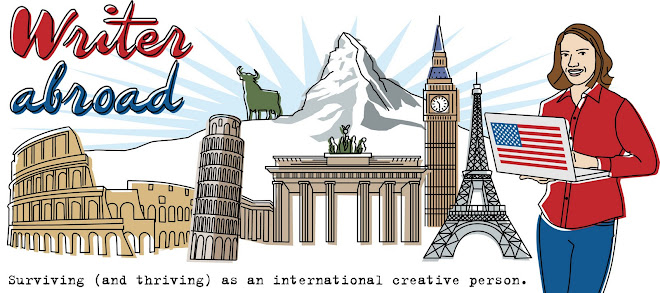Last night Writer
Abroad told Husband Abroad that she was doing pretty well separating herself
from her work.
He replied, “But you
ARE your work.”
Writer Abroad
disagreed. “No, I am not my work. I emotionally detach myself from anything I
write after I write it,” she said.
He didn’t get it.
Is Husband Abroad his IT?
Does being Manager of Lots of People define his soul? No. So being a writer
shouldn’t define Writer Abroad’s—even when she’s writing about real life. Her life.
So Writer Abroad added,
“I can’t worr
y about what half a million people reading my latest piece think. I have
to ignore their comments. Ignore, in a way, that my work is even out
there—while at the same time promoting it."
 |
| Which lead to the tabloid article |
Finally he said, “I
guess I can’t relate. I get 5 likes on my Instagram photos.”
Here's the thing: I don’t think anyone
who is not a writer—especially one who is writing personal essays or memoir—can relate
to how one must go about living with having part of their soul out there. The
key word, though, is part.
The world knows a small part of Writer
Abroad’s story today. Her photos and an exaggerated version of the story are once again in one of Switzerland’s
tabloids this evening. Her latest story was tweeted 1600 times and counting
since yesterday. 53,000 Facebook shares. And counting. Which in turn sold over 50
books that tell yet another story about her life. The cycle of a writer goes on
and on.
It’s overwhelming.
It’s scary. But luckily, Writer Abroad has learned how to deal with readers knowing more about her life than she knows about theirs (even if some of them tell her quite a lot about their own story in their emails) by separating her life
as it is shaped on a page and her life as it is in reality. It’s a subtle
difference. But it’s an important one.
Do you separate yourself and your work? If so,
how?


